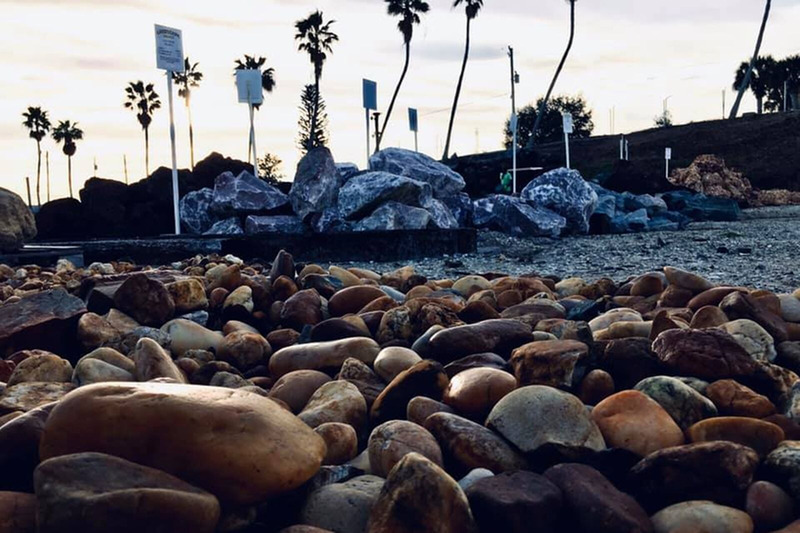Gravel, Mulch, Sand...Which Should I Choose for My Landscaping?
Posted: April 23rd, 2021
When it comes to choosing a decorative stone, mulch, sand, or soil for your landscape, the options are vast. Each material comes with its own unique set of pros and cons, depending on your specific needs and goals. Whether you're looking for something that enhances the aesthetic appeal of your outdoor space or serves a more functional purpose, Landscape Depot is your one-stop shop for all your landscaping needs in beautiful Brevard County!
Stone
Gravel or rocks can be the perfect way to enhance a landscape or garden space, especially around structures in your residential or commercial property. This material does not deteriorate after installation, saving time and money in the long run, though initial costs may be higher than other materials.
Stone is highly weather-resistant, making it a great choice for Brevard County's environment. Its resistance to moisture allows it to be used around pools or hot tubs, and it can also help reduce erosion caused by rain and wind. However, there are some drawbacks, particularly for plant health. Lighter rocks may reflect too much heat, which can harm certain plants. Additionally, gravel and stone are more alkaline, which may be detrimental to plants that thrive in acidic soil.
Round Gravel (River Rocks)
The smoother, rounded gravel or stone is ideal for decorative landscaping, driveways, or walkways, such as winding paths through gardens.
Broken Gravel (Crushed Gravel)
Crushed gravel offers more angular surfaces and serves well in decorative landscaping or as a drainage material for gardens. Its angular shape helps it lock in place better than rounded gravel.
Mulch
If you're looking for a material commonly used around plants, trees, and flower beds, mulch is typically the most popular choice. It provides nutrients that plants thrive on, helps retain moisture, regulates soil temperature, and reduces erosion and compaction.
However, to reap these benefits, mulch must be applied correctly—typically in a 3-inch-deep layer. Insufficient amounts can prevent it from providing the full range of advantages. One drawback of mulch is that it needs to be replenished annually, but the benefits often outweigh the cost of replacement.
Sand
Sand is another versatile material commonly used in landscaping. It’s perfect for covering the ground around playgrounds or play areas because its soft texture is safer when fallen on. Sand can also be used for landscape edging, helping to define flower beds or other decorative features, while providing erosion protection. It’s also a popular choice as filler between pavers.
Soil
Soil is the foundation of any successful landscape and plays a crucial role in supporting plant growth. The right soil helps plants establish strong root systems, improves water drainage, and provides essential nutrients. Whether you're planting flowers, shrubs, or trees, selecting the right soil is key to the success of your garden.
There are many types of soil, each with specific qualities suited to different landscaping needs. For example, sandy soils drain well but may lack nutrients, while clay soils retain moisture but can become compacted. Loamy soil, a balanced mix of sand, silt, and clay, is often the ideal choice for most plants due to its well-draining yet nutrient-rich properties.
When considering soil for your landscape, it’s essential to match the right type to your plants’ needs. Soil amendments, such as compost or organic matter, can be added to improve soil quality and boost plant health.
Conclusion
When it comes to landscaping materials—whether stone, mulch, sand, or soil—there are virtually endless possibilities. At Landscape Depot, we offer a wide selection of these materials to fit your specific project needs, whether residential or commercial. Please call us today for more information about our popular materials, or if you're looking for something unique, we can help you find the perfect solution.
We look forward to partnering with you on your next landscaping project. Explore our full range of gravel, rocks, sand, stone, and soil at Landscape Depot!

